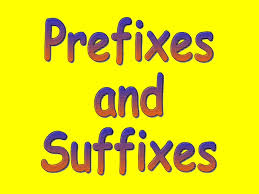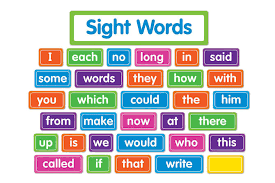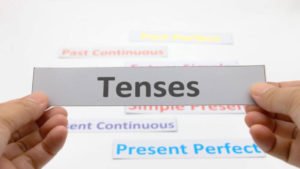We hear about prefixes and suffixes quite often and with equal frequency. Do we make use of them in our everyday conversations? Has it ever occurred to you, why specifically we need to understand their relevance? or Why do they hold an eminent position in the content of English textbooks? In this article, we will discuss the differences between a prefix and a suffix. Read on to learn how to use them along with some common examples and their meanings.

- What is a Prefix?
- When should you use hyphenated prefixes?
- What are some examples of prefixes and what do they mean?
- What exactly is a suffix?
- When should you hyphenate suffixes?
- What are some examples of suffixes?
- When should you use prefixes and suffixes in English grammar?
- What are some important facts you should know?
- Parting Words from Podium
What is a Prefix?

Let’s understand prefix simply as an affix that can be inserted before a stem of a word that will consequently result in changing its meaning. Developing an understanding of prefix not only enhances your vocabulary but also helps in building your ability to break down new words into segments, which makes the process of learning new words easier.
When should you use hyphenated prefixes?
You must use a hyphen between your prefix and term in the following cases:
- Proper nouns
When adding a prefix to a proper noun, a hyphen must be added.
For example, it’s possible that disliking apple pie is un-American.
- The same vowel
If the last letter of your prefix is the same as the initial letter of the term, a hyphen must be added.
For example, customers must receive a punched ticket to re-enter the amusement park.
- When using the prefixes ex- and self-, always use a hyphen.
For example, after having a baby, Lisa was self-conscious about her figure.
- When a term may generate misunderstanding or appear weird in a statement, use a hyphen to clarify it.
For example, after the children had finished playing, the mother reminded them to re-cover the sandbox.
The hyphen is necessary so that readers do not confuse re-cover with the term recovers.
What are some examples of prefixes and what do they mean?
- a-
This means making, not or without.
For example, amoral, abiotic, atheist.
- de-
The prefix means to undo, remove and reverse.
For example, deactivate, deplane, de-ice.
- ab-
This prefix means not or away.
For example, instance, abstract, abnormal or absent.
- an-
The prefix implies that something is lacking or without.
For example, anaerobic, anhydrous, acoustic.
- anti-
The prefix anti- means against, contrary to, and opposing something.
For example, antifreeze, antisocial, antibiotics.
- contra-
This means contrary to, opposing or against.
For example, contralateral, contraflow, contraindicated.
- counter-
This prefix also means opposing or against.
For example, counter-attack, counterproposal.
- ante-
The prefix is used when saying prior to, front, or before.
For example, anterior, antebellum, antechamber.
- co-
This means jointly or together.
For example, coexist, coworker and copilot.
- semi-
This prefix means to be less than full, somewhat and partial.
for example, semiconductor, semi-retired, semester.
- circum-
This implies something is going around.
For example, circumscribe, circumnavigate, circumvent.
- con-
The meaning is with or together.
For example, confound, conversation, confluence.
- exo-
This prefix means out or outer.
For example, exhale and exoskeleton.
- inter-
The prefix means between or among.
For example, interstellar, intersect or intervene.
What exactly is a suffix?

A suffix is a word portion that is added to the end of a word to give it a new meaning. Suffixes can convey grammatical or lexical information.
Suffixes are classified into two types: inflectional as well as derivational. Inflectional suffixes are sometimes known as grammatical suffixes. Such inflexion alters a word’s grammatical features. Derivational suffixes can be further categorized into two types: class-changing derivation and class-maintaining derivation.
When should you hyphenate suffixes?
It is important to hyphenate your suffixes in the following instances.
- Lengthy Words
An optional hyphen might be added when a word appears to be too long without one.
For example, community-wide.
- With suffixes “-type” “-designate” and “-elect”.
What are some examples of suffixes?
- -al
This means to act or in the process of.
For example, recital, refusal or rebuttal.
- -dom
The suffix means a place or state of being.
For example, freedom, boredom and kingdom.
- -ism
This suffix means belief.
For example, narcissism, scepticism.
- -ment
This implies the condition of something or someone.
For example, argument, punishment, endorsement.
- -ship
The suffix -ship is used for a position held by someone.
For example, ownership, fellowship, internship or kinship.
- -y
This means characterized by.
For example, sleazy, greasy, hasty, nerdy, smelly.
- -ness
The suffix is used for a state of being.
For example, sadness, testiness, heaviness.
- -ive
This means having the nature of.
For example, punitive, decisive, creative.
- -ist
This suffix means one who is.
For example, narcissist, plagiarist or chemist.
- -er and -or
This suffixes user for a person.
For example, teacher, trainer, protector.
- -en
This implies becoming something.
For example, enlighten, strengthen and awaken.
- -ant
This suffix is used when someone is inclined or tending to be something.
For example, defiant, brilliant or reliant.
- -less
This means without.
For example, lawless, effortless and endless.
- -ity or -ty
The suffix depicts the quality of something or someone.
For example, serenity, inactivity or parity.
When should you use prefixes and suffixes in English grammar?
We must always use caution in the application of prefixes and suffixes. We may be perplexed by numerous terms, such as ‘illogical,’ but due to the ambiguity, people may misinterpret it as ‘dialogical’ which is incorrect. As a result, we must exercise extreme caution when employing these affixes.
What are some important facts you should know?
The beginning of the term will alter when prefixes are used. As a result, if the prefix ends with a vowel, such as ‘e-‘, the root word that begins with a consonant will stay unchanged, such as “rework”. However, if the root word begins with a vowel, the consonant is added.
Similarly, the end of the word may alter when suffixes are used. If the word ends in the vowel ‘e,’ we do not use a double ‘e,’ but rather a single ‘e.’ Furthermore, if the word ends in a ‘y,’ we may replace the ‘y’ with an “I,” thus “happy” becomes “happily” with the suffix “ily.”
Parting Words from Podium
If you have made it till here then you surely would have had your prior knowledge of prefix and suffix all brushed up. And not just that, rather this article elucidates a list of some useful prefixes and suffixes which you can make a note of, for future reference.
Head towards the Podium Blog to know about more such important concepts and topics.
Share with your friends






